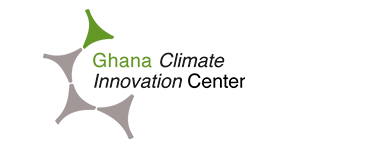Imagine clean, clear water bodies in which communities can fish and swim without being fearful for their health!
This vision and target is why Yvette Tetteh, an agribusiness entrepreneur and CEO of Yvayva Farms, literary winner of the Koffi Addo Prize for Non-Fiction in 2016, an activist and a Ghana Climate Innovation Centre (GCIC) Cohort 5 entrepreneur, has swum a total of 350km across the Volta River, from Buipe to Akosombo, in the longest known swim expedition in West African history. This was possible after a year and a half of scientific research by the Or Foundation into the environmental impact of secondhand clothing waste flowing through Ghana, which is one of the largest recipients of used clothing in the world.
As well as swimming between 10 to 20 kilometers every day, Yvette, and the expedition crew of the Or Foundation’s accompanying research vessel, The Woman Who Does Not Fear, take water, and air samples every day to check for microfibers and microplastics following the same protocols as the Or Foundation team gathering samples in Accra to raise awareness about Textile Pollution.
On 1st May 2023, she swam the last 100km stretch south of the Akosombo Dam to the Gulf of Guinea with the crew to raise awareness about the impact of waste colonialism on the ecosystems that give life to millions of people throughout the region.
The project, called the Agbetsi Living Water Swim, is tracking the impact of textile waste throughout the country. “Agbetsi” is an Ewe word, for living water, reflecting the team’s passion to keep Ghana’s waterways alive.
The Or Foundation has also released “The Untold Stories from The Volta”, a series of 12 commissioned stories from along the expedition route accessible through the campaign website https://livingwaterswim.org as Yvette swims past the location of each story.
Yvette reasons that, with the same approach that she undertook the swim; stroke by stroke, so too can Ghanaians tackle the cleaning of the polluted Korle Lagoon that was once considered a sacred swimming hole and source of food for Accra natives.
Yvette’s initiative has marked a series of groundbreaking firsts: the first time the largest manmade lake in the world has been crossed by swimming, the first time a solar powered research vessel that has been built in Ghana and the first study of microfiber pollution undertaken along 450km of Ghana’s internal coastline.
The Or Foundation, an Accra-based NGO estimates that Ghana receives around 15 million items of secondhand clothing from the Global North and that on average, 40% of every bale opened in Kantanmanto, Accra, is discarded as waste, causing enormous environmental and social problems.
The GCIC is in awe and so proud of Yvettes commitment to ecological prosperity.
ABOUT THE OR FOUNDATION
The Or Foundation (pronounced “or”) stands for choice. Choice is agency – agency to escape the predominant violent socio-economic system of corporate colonialism and to change it from within. They are a 501(C)(3) public charity in the USA and a registered charity in Ghana that has been operating in both countries since 2011. Working at the intersection of environmental justice, education and fashion development, their mission is to identify and manifest alternatives to the dominant model of fashion – alternatives that bring forth ecological prosperity, as opposed to destruction, and that inspire citizens to form a relationship with fashion that extends beyond their role as consumer.
Their goal is to catalyze a Justice-Led Circular Economy, including immediate relief through direct action on human rights and environmental abuses, educational programming, and awareness to shift individual actions, and research and institutional advocacy to steer systems level policies and investments.
Visit the Or Foundation website at visit www.theor.org and sign their petition at https://stopwastecolonialism.org/#take-action . Visit their twitter page @theORispresent

